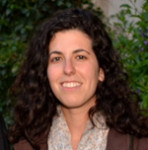By Anav Silverman

JERUSALEM (Tazpit)–This year, the call of the shofar will be made accessible to thousands of Israelis, many of whom have never previously heard the blast of the shofar traditionally sounded on Rosh Hashanah in the synagogue. After 15 years of expanding Yom Kippur programs to 295 locations across the country, Tzohar, the religious Zionist Rabbis organization in Israel, will now implement a new Rosh Hashanah ‘Listening Together’ Shofar Program.
The ‘Listening Together’ Shofar Program will take place in 60 different locations across Israel in smaller communities like Lapid in central Israel, Tal El and Hamadia in the north as well as the larger cities of Jerusalem and Tel Aviv. Tzohar expects around 6,000 participants to attend the shofar program, which will be held in ‘neutral’ locations around the country.
“Going to a religious synagogue can be an intimidating and sometimes off-putting experience for someone who doesn’t regularly attend or associate with that particular community,” said Rabbi David Stav, co-founder of Tzohar.
“We have seen such an outpouring of desire for Jewish connection by the secular community, especially relating the High Holidays, that we knew something had to be done to accommodate them,” explained Rabbi Stav. “By moving these important Jewish lifecycle events to neutral locations – such as community centers or event halls- it becomes more much inviting and accessible for anyone interested in connecting with their Jewish tradition.”
“We invested a lot of preparation and planning into this project,” Hani Ganod, the project director told Tazpit. “Over 100 Tzohar volunteers are working to make the program happen,” she said.
At each location, locals will congregate to hear the shofar blown, and learn about the significance of the ancient custom and sing holiday songs. Tzohar is also providing prayer books (machzorim) as well as an explanatory pamphlet created by Tzohar about the customs, prayers and meaning of the High Holidays to help guide participants throughout the services. The free program will also include activities conducted for children and wine for kiddush and cookies.
“For some attendees, this will be the first time that they will hear the shofar blown,” Ganod told Tazpit.
“One of the goals of Tzohar is to make all religious Jewish holidays accessible to all of Israel. While Yom Kippur is part of the national consciousness, the religious traditions of Rosh Hashanah are not,” she said.
The reaction to Tzohar’s past Yom Kippur programs has been overwhelming according to organizers. Tzohar estimates that this year over 55,000 people will participate in Tzohar programs on Yom Kippur around the country.
“The powerful reaction to the Yom Kippur program and our other holiday activities showed the excitement and connection people feel. Adding Rosh Hashana programming was a natural next step,” added Yakov Gaon, Executive Vice President of Tzohar.
“Tzohar is continuously adding additional programs to encourage Jewish participation in life cycle events,” commented Gaon.
*
Silverman is a staff writer for the Tazpit News Agency in Israel.